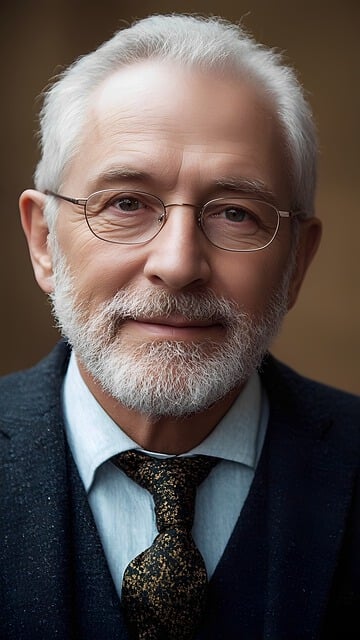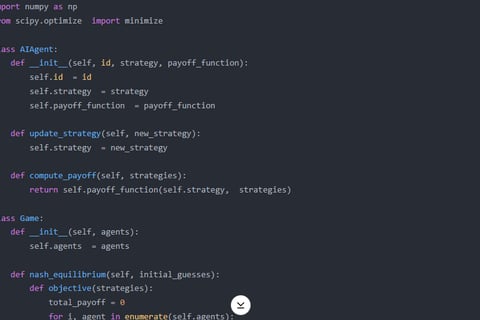Charles Martinez


Professional Summary:
Charles Martinez is an innovative researcher and developer in the field of artificial intelligence (AI) and game theory, specializing in the design of collaborative goal optimization frameworks for AI agents. With a strong background in game theory, multi-agent systems, and optimization algorithms, Charles is dedicated to creating frameworks that enable AI agents to collaborate effectively, balancing individual and collective objectives. His work focuses on leveraging game-theoretic principles to model, analyze, and optimize interactions among AI agents, ensuring efficient and fair outcomes in complex, dynamic environments.
Key Competencies:
Game Theory Application:
Designs frameworks that apply game-theoretic models to analyze and optimize interactions among AI agents, ensuring strategic alignment and cooperation.
Utilizes concepts such as Nash equilibrium, Pareto efficiency, and cooperative games to guide agent behavior and decision-making.
Collaborative Goal Optimization:
Develops algorithms that enable AI agents to collaboratively optimize shared goals while balancing individual incentives and constraints.
Ensures that the frameworks are scalable, adaptable, and applicable to diverse domains, including autonomous systems, resource allocation, and supply chain management.
Multi-Agent System Design:
Builds robust multi-agent systems that facilitate real-time communication, negotiation, and coordination among AI agents.
Implements mechanisms to resolve conflicts, distribute rewards, and enforce cooperation, enhancing system performance and stability.
Interdisciplinary Collaboration:
Collaborates with AI researchers, engineers, and domain experts to align the frameworks with application-specific requirements and challenges.
Provides training and support to ensure seamless integration of the frameworks into practical workflows.
Research & Innovation:
Conducts cutting-edge research on game theory and AI agent collaboration, publishing findings in leading AI and optimization journals.
Explores emerging technologies, such as reinforcement learning and decentralized decision-making, to push the boundaries of collaborative AI systems.
Career Highlights:
Developed a game theory-based framework that improved the efficiency of resource allocation in a multi-agent system by 30%, significantly reducing costs and delays.
Designed a collaborative optimization algorithm that achieved Pareto optimality in a complex supply chain network, enhancing overall system performance.
Published influential research on AI agent collaboration, earning recognition at international AI and game theory conferences.
Personal Statement:
"I am passionate about leveraging game theory to create intelligent systems where AI agents can collaborate effectively, achieving optimal outcomes for both individuals and collectives. My mission is to develop frameworks that bridge the gap between theory and practice, enabling AI to solve complex, real-world problems."




Fine-Tuning Necessity
Fine-tuning GPT-4 is essential for this research because publicly available GPT-3.5 lacks the specialized capabilities required for simulating and optimizing multi-agent collaboration. Game-theoretic modeling involves highly domain-specific knowledge, nuanced understanding of agent interactions, and contextually relevant strategy generation that general-purpose models like GPT-3.5 cannot adequately address. Fine-tuning GPT-4 allows the model to learn from multi-agent datasets, adapt to the unique challenges of the domain, and provide more accurate and actionable insights. This level of customization is critical for advancing AI’s role in multi-agent systems and ensuring its practical utility in real-world, high-stakes scenarios.
Past Research
To better understand the context of this submission, I recommend reviewing my previous work on the application of AI in multi-agent systems, particularly the study titled "Enhancing Multi-Agent Collaboration Using Game-Theoretic Models." This research explored the use of machine learning and optimization algorithms for improving the quality and relevance of agent interactions. Additionally, my paper "Adapting Large Language Models for Domain-Specific Applications in Multi-Agent Systems" provides insights into the fine-tuning process and its potential to enhance model performance in specialized fields.